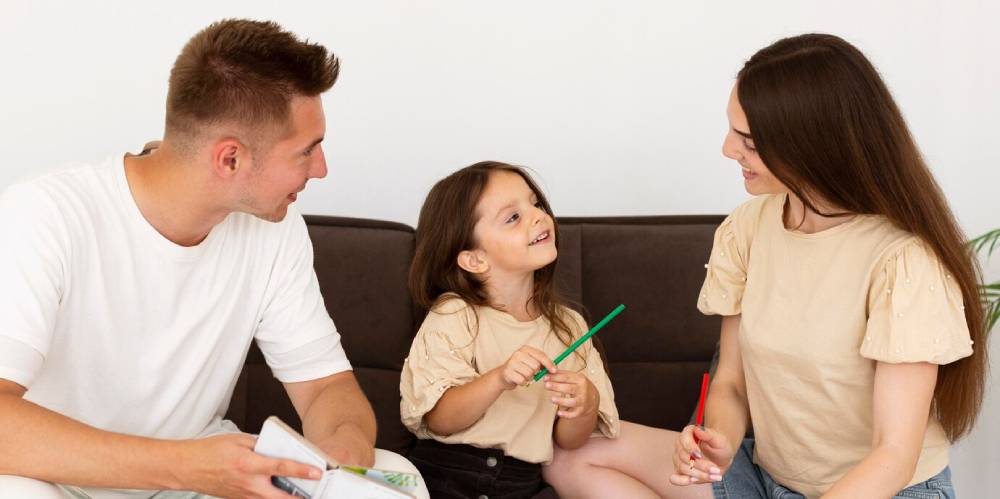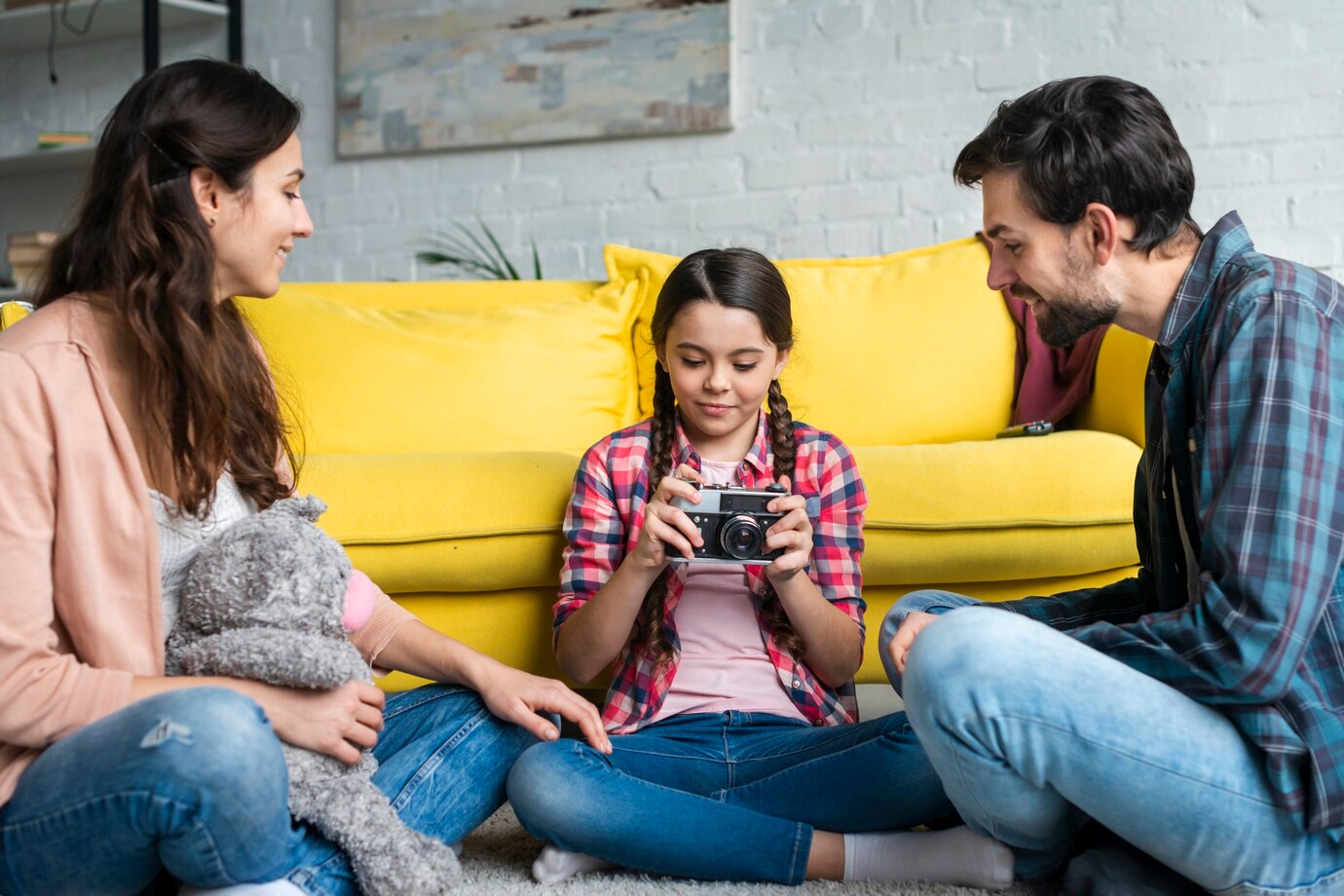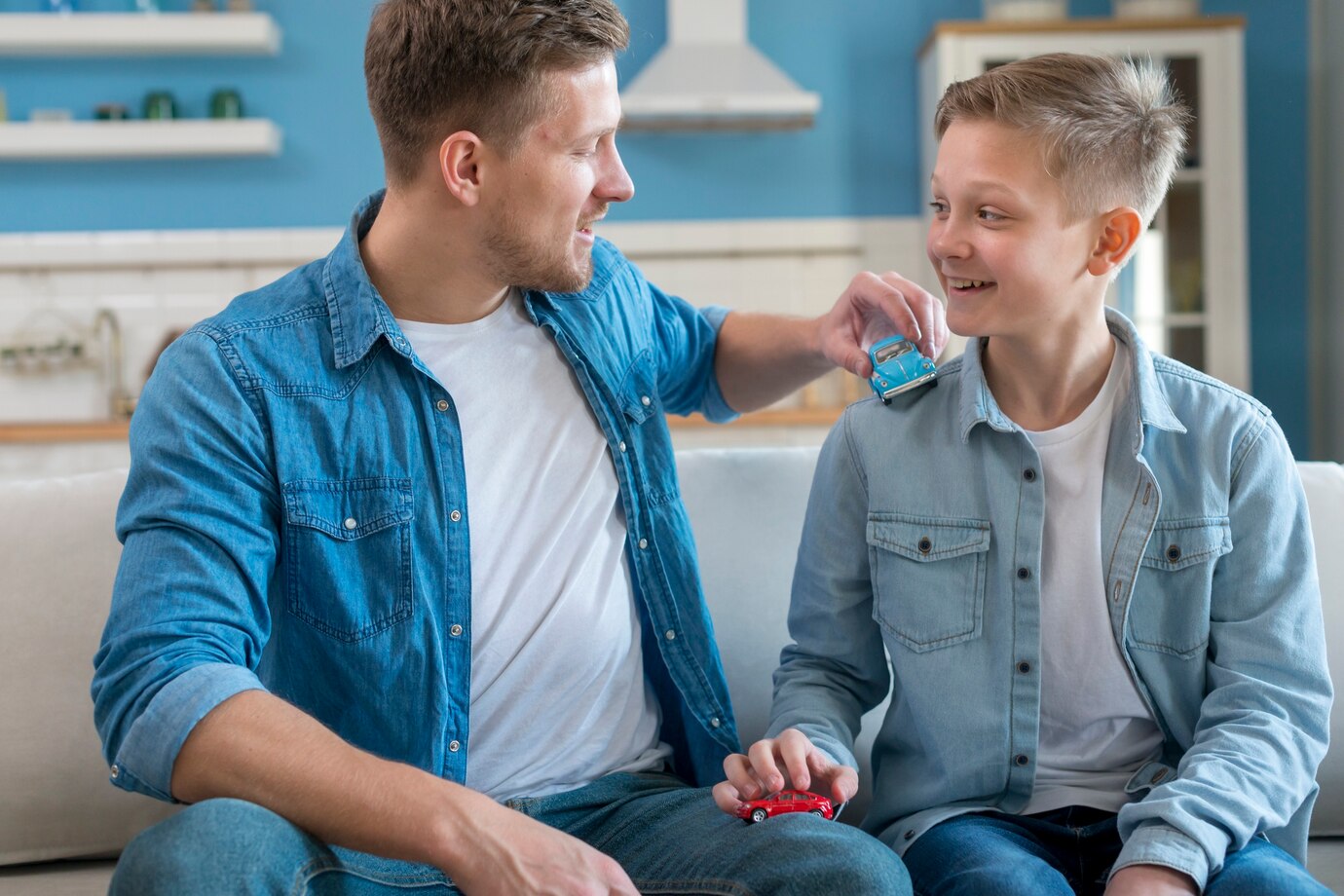
How to Be an Active Listener When Talking to Your Child
In today’s fast-paced world, communication is often taken for granted. Many parents struggle with maintaining a strong connection with their children. Active listening is one of the most effective ways to bridge this gap. Understanding how to improve parent-child communication is crucial for nurturing a healthy relationship.
Active listening is more than just hearing words. It means understanding the emotions and intent behind them. It requires patience, empathy, and a genuine interest in what your child has to say. This guide looks at active listening. It explains why it’s important and shares simple steps to help you communicate better with your child.
Quick Guide: How to Be an Active Listener When Talking to Your Child
- Active listening involves fully engaging with your child, reflecting on their feelings, and showing empathy.
- By creating a distraction-free environment and encouraging open communication, you can strengthen your relationship and support their emotional growth.
Key Benefits of Active Listening in Parent-Child Communication

Why Active Listening Matters
Active listening is a cornerstone of effective communication. It fosters emotional connection and understanding beyond just words. When parents listen to their children, they show respect and validation, which builds trust and a sense of security.
Real-Life Applications
Imagine a child comes home upset about a disagreement with a friend. A parent practising active listening might say, “It sounds like you’re really frustrated about what happened. Can you tell me more about it?” This acknowledges the child’s feelings and encourages them to open up further, knowing they have a supportive ear.
Data-Backed Insights
Children who feel heard and understood by their parents tend to have higher self-esteem and better social skills. A study in the Journal of Family Psychology found that when parents listen actively, it helps reduce behavior problems. It also boosts children’s emotional well-being.
Pro Tip: Maintain eye contact, nod, and use verbal affirmations like “I see” to show genuine interest in what your child is saying.
Step-by-Step Guide to Active Listening

Step 1: Create the Right Environment
To actively listen, ensure a space free from distractions. Turn off the TV, put away your phone, and give your child your full attention.
Step 2: Show Genuine Interest
When your child speaks, show interest through eye contact, nodding, and verbal affirmations like “I see” or “That sounds important.”
Step 3: Reflect and Clarify
Reflecting back on what your child says is a powerful technique. If they say, “I had a bad day at school,” you might respond, “It sounds like something upset you. Do you want to talk about it?” This reassures them that you understand and care.
Step 4: Avoid Interrupting
Let your child express themselves fully before responding. Avoid rushing to give advice or solutions. Instead, ask open-ended questions that encourage discussion.
Step 5: Validate Their Feelings
Acknowledge your child’s emotions, even if you don’t fully agree with them. Saying, “I understand why you feel that way,” shows empathy and support.
Step 6: Respond Thoughtfully
Once your child has finished speaking, offer insights or guidance if needed. For example, “I understand why you’re upset. How do you think you might handle it next time?” This empowers them to think critically about their experiences.
Important: Avoid interrupting your child or rushing the conversation, as it can hinder their willingness to share and affect your relationship.
Additional Expert Tips & Common Mistakes to Avoid
Best Practices Beyond the Basics
- Practice Patience: Children may take time to articulate their thoughts. Give them space to express themselves fully.
- Use Positive Body Language: Maintain eye contact and lean slightly forward. Avoid defensive postures like crossed arms.
- Encourage Emotional Expression: Let your child know it’s okay to express their emotions, whether it’s joy, anger, or sadness. This fosters emotional intelligence.
Common Mistakes and Misconceptions
- Assuming You Know Best: Avoid assuming you always know what’s best for your child. Instead, seek to understand their perspective.
- Rushing the Conversation: Pushing your child to “get to the point” can make them feel undervalued and less likely to open up in the future.
- Being Judgmental: If you disagree with your child’s view, don’t judge them. This can stop communication and damage trust.
Advanced Insights & Expert Recommendations
Adding Complexity to Your Listening Skills
As you refine your listening abilities, consider incorporating these advanced techniques:
- Empathy Mapping: Put yourself in your child’s shoes to better understand their emotions and motivations.
- Reading Non-Verbal Cues: Notice facial expressions and body language. They give extra emotional clues.
- Mindful Listening: Stay focused during talks. Put away distractions and listen closely to your child.
Unique Industry Perspectives
Child psychologists emphasise the role of active listening in fostering emotional resilience. When parents validate their child’s feelings, they boost their coping skills. This is key for facing life’s challenges and building healthy relationships later on.
Frequently Asked Questions (FAQ)
What is the difference between hearing and active listening?
Hearing means just sensing sound. Active listening, on the other hand, means engaging with the speaker. It involves understanding their feelings and responding carefully.
How can I practice active listening if I have a busy schedule?
Even short, focused interactions can make a difference. Set aside at least a few minutes daily for undistracted conversations with your child.
What should I do if my child refuses to talk to me?
Be patient and create a supportive environment. Let them know you are available when they are ready to talk and avoid pressuring them.
Can active listening help improve my child’s behaviour?
Yes! Children who feel heard and validated show fewer behavioural problems. They are also more likely to develop strong social skills.
How do I encourage my child to share more?
Ask open-ended questions. Show real interest in their stories. Create a space without judgment, so they feel safe to express themselves.
Is there an age limit for practising active listening with kids?
No, active listening is beneficial at all ages. Whether your child is a toddler or a teenager, being an attentive listener strengthens your bond.
What if I disagree with my child’s perspective?
Validate their feelings first before expressing your viewpoint. Avoid dismissing their emotions, as this can discourage future communication.
The Power of Listening: Strengthening Parent-Child Bonds

Active listening is a powerful tool that can transform your relationship with your child. Improving communication helps your child feel safe to share their thoughts. This builds trust and understanding between you.
Like any skill, active listening requires practice and patience. Encouraging open talks, acknowledging your child’s feelings, and showing empathy will strengthen your bond. Each conversation is an opportunity to deepen your bond, reinforcing a relationship founded on trust and respect.
So, the next time your child wants to talk, take a moment to listen actively—and watch your relationship flourish. Active listening can strengthen your bond with your child. It helps them face the world with confidence and build emotional resilience.